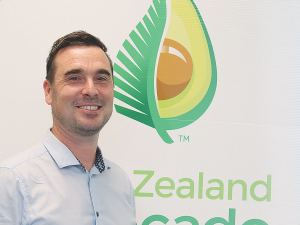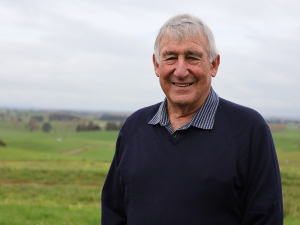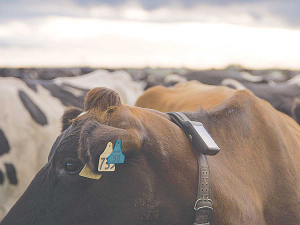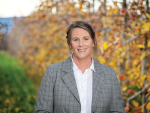After two challenging years, the country’s avocado growers are quietly optimistic that a good year is in the making.
NZ Avocado chief executive, Brad Siebert, says much better weather and a change in export strategy could see a much-improved season for growers.
He says the previous two seasons were a struggle for all growers as they dealt with negative cashflow and rising business costs.
“In 2022 we had Cyclone Dovi and in 2023 it was Cyclone Gabrielle and this led to the downgrading of fruit, which in turn led to reduced exports and returns to growers,” he told Hort News.
Siebert says most growing regions had a strong pollination last October and estimates suggest this will result in a crop of some 7 million trays – well up on last year’s 5 million.
Given the impact of weather on avocado growers, some are looking at ways of better protecting fruit from damage. Better shelter around orchards to protect from wind damage is seen as important: Wind causes visual scars on the young fruit affecting quality and quantity of export grade fruit.
“Some growers are in the early stages of trialling new growing systems including covering their crops or growing them in less conventional ways – even along wires in a 2-D espalier set up. While it’s a long process to trial the outcomes of these systems, the industry is encouraging these and other orchard initiatives towards improved productivity and quality outcomes,” says Brad Siebert.
Read More
While around 50% of avocado hectares and production is based in the Bay of Plenty, it should be noted that the majority of those orchards are about 3ha, whereas in Northland, where 45% of the fruit is grown, the orchards are much larger. The remaining production is spread around Auckland, Gisborne and Taranaki.
New Zealand Avocado is a growers’ association group and does not sell or market the fruit – this is left to about eleven exporters.
Brad Siebert says his absolute priority is to increase returns to growers and to provide good returns on investment for the levies growers contribute.
Given the experience of the past two years and the increasing competition in key markets, he says a key decision has been to review and change the settings of the industry export strategy to build seasonal resilience and to remove roadblocks that prevent exporters from extracting value from the international market for all classes of fruit.
“What that’s done is provide better value to growers across all grades of fruit while also relieving volumes on the NZ market during our peak export season,” he says.
The prospect of a good season approaching is helping to validate the industry outlook the sector has been presenting to banks to reassure them that recent climatic events were a major influence on export returns. Siebert says banks, like growers, have had to weather the financial storms of Dovi and Gabrielle and are now seeking assurances that the avocado sector is once again viable and back on track.
“We are about to prove to rural lenders they can have confidence in the sector going forward,” he says.











